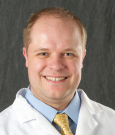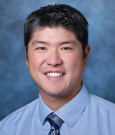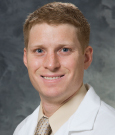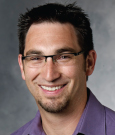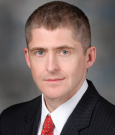The American Society for Radiation Oncology (ASTRO) presented seven physicians a total of $675,000 in awards and grants to advance radiation oncology research. The awards will fund studies in radiation and cancer biology, radiation physics, translational research, outcomes/health services research, and comparative effectiveness research within radiation oncology. Recipients were recognized at ASTRO’s 56th Annual Meeting earlier this month in San Francisco.
“High-quality research is essential to advancing radiation oncology and to providing the best possible treatments for our patients,” said ASTRO Chair Colleen A.F. Lawton, MD, FASTRO. “ASTRO is proud to support these seven outstanding researchers in their work to improve radiation oncology and cancer care.”
Junior Faculty Career Research Training
The ASTRO Junior Faculty Career Research Training Award provides $100,000 annually for 2 years to two winners ($200,000 to each recipient) to support the careers of promising junior faculty by offering them the opportunity for dedicated time to work on research projects in radiation oncology, biology, physics, or outcomes/health services. Recipients must be board-eligible physicians, physicists in radiation oncology or radiobiologists within the first 3 years of their junior faculty appointment.
The two 2014 ASTRO Junior Faculty Career Research Training Award recipients are:
Bryan Allen, MD, PhD, of the University of Iowa Hospitals and Clinics in Iowa City. Dr. Allen is working to determine if pharmacological ascorbate can be used to modulate chemoradiation sensitivity in non-small cell lung cancer and therefore be utilized to improve outcomes in lung cancer treatment.
Stephen Shiao, MD, PhD, of Cedars-Sinai Medical Center in Los Angeles. Dr. Shiao is researching the mechanisms by which blocking interleukin (IL)-4, a cytokine that controls the development of macrophages that suppress an ongoing immune response, enhances solid tumor response to radiation therapy.
Residents/Fellows in Radiation Oncology Research
The ASTRO Residents/Fellows in Radiation Oncology Research Seed Grant awards $25,000 for 1-year projects to residents and fellows who are planning to pursue careers focusing on basic science or clinical research in radiation oncology services.
The three 2014 grant recipients are:
Zachary Morris, MD, PhD, of the University of Wisconsin Hospitals and Clinics in Madison. Dr. Morris is comparing the efficacy of combinations of radiation, a tumor-specific antibody that elicits antibody-dependent, cell-mediated cytotoxicity, and a checkpoint inhibitor with respect to the control of local, distant (non-radiated) and reintroduced sites of disease to evaluate the immune response to these treatments. Previous research suggests radiation may complement immunotherapies by enhancing the immune susceptibility of tumor cells.
Tu Dan, MD, of Thomas Jefferson University in Philadelphia. Dr. Dan is examining the inhibition of miR-21, an oncogenic microRNA, to overcome treatment resistance and to sensitize tumors to DNA-damaging agents in radioresistant breast cancer.
Todd Aguilera, MD, PhD, of Stanford University Cancer Center in Stanford. Dr. Aguilera is investigating why tumor immunity often does not occur in a checkpoint blockade setting and is evaluating the Abscopal Effect of radiation that, when combined with radiation, can lead to immune responses in untreated tumors.
Comparative Effectiveness Research
The ASTRO/ROI Comparative Effectiveness Research Award provides $50,000 annually for 2 years to two researchers ($100,000 to each recipient) who will conduct comparative effectiveness research examining radiation oncology treatment. At the time the award begins awardees are board-certified or board-eligible physicians in radiation oncology and are focused on academic radiation oncology. The two 2014 recipients are:
Benjamin Smith, MD, of The University of Texas MD Anderson Cancer Center in Houston. Dr. Smith is working to improve and personalize the selection of local therapy in older women with localized, estrogen receptor–positive breast cancer by comparing quality of life outcomes for patients treated with four local therapy options: lumpectomy with whole breast irradiation, lumpectomy with brachytherapy, mastectomy without radiation, and lumpectomy with endocrine therapy alone.
James Murphy, MD, MS, of the University of California, San Diego. Dr. Murphy is examining the patterns of hypofractionated breast radiation, studying the comparative effectiveness and assessing the patient or provider characteristics associated with the use of hypofractionated vs standard fractionated radiation therapy.
For more information about ASTRO-supported grants and awards, visit www.astro.org/grants. ■

